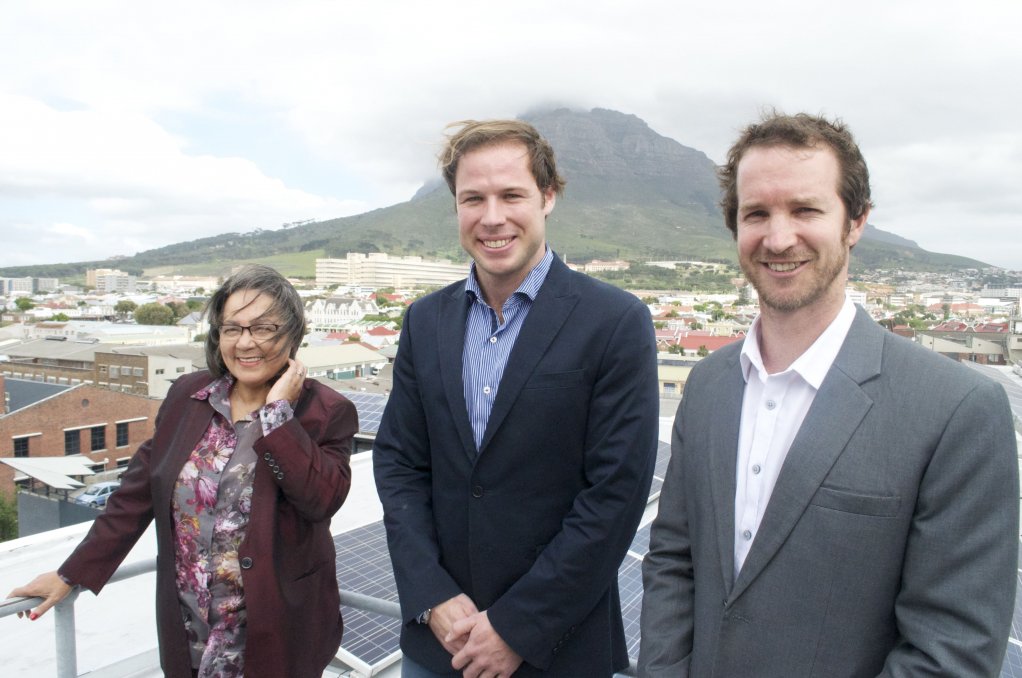
DISTRIBUTED LEADERSHIP Cape Town mayor Patricia de Lille, with PJ Rabie and Dominic Chennells
In a boost for renewable energy, the City of Cape Town has signed its first small-scale embedded electricity generation contract with Black River Park Investments, an office park in Observatory.
The 74 000 m2 office park uses large-scale solar power systems to generate environmentally sustainable energy.
Some of the electricity it produces is used to meet its own energy demands, and it will now feed a limited amount of extra electricity back into the city’s grid in exchange for an offset against the park’s monthly electricity accounts.
The electricity it saves over quiet weekends, when the load is reduced, could be saved and fed back into the city’s grid.
Cape Town mayor Patricia de Lille says she envisages this to be the first of many small-scale electricity generation (SSEG) installations to be connected to the city’s grid.
“We are hopeful that the provision of such opportunities will help stimulate the green economy by increasing demand for solar panels and other sources of alternative energy. This will, in turn, create jobs in this sector.”
Property manager PJ Rabie comments that the move is significant for South Africa, as it is the first of its kind in the country.
“We want to show our fellow members of industry that this is viable and can produce returns for shareholders.”
Meanwhile, Dominic Chennells, the FD of Sola Future Energy, which installed the solar panels, points out that the panels are guaranteed to last 20 years.
The panels cover the equivalent of two full-sized rugby fields and generate between 20% and 30% of the complex’ electricity requirements.
The panels are pitched to optimise performance throughout the seasons. During cloudy days, with indirect sunlight, the park will draw from both the grid and the solar panels.
Chennells says he envisages the system will pay back within six to eight years’ time.
The Black River Park’s solar photovoltaic installation has already saved around 1 300 t of coal through the use of renewable energy.
City of Cape Town energy and climate change committee chairperson Matthew Kempthorne says the signing is the culmination of three years of hard work, during which the committee took various financial and technical considerations into account.
The city has been working out appropriate tariffs, suitable metering systems that would measure power flow in two directions and the implementation of automated billing systems that could take into account both the buying and selling of electricity.
The City of Cape Town has set itself a target of sourcing 10% of its electricity from renewable-energy resources by 2020.
Consumers who would like to feed SSEG electricity into the municipal electricity grid need to have a bidirectional advanced meter infrastructure credit meter installed by the City of Cape Town at their own cost and take their electricity supply at the appropriate SSEG tariff.